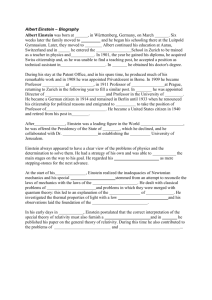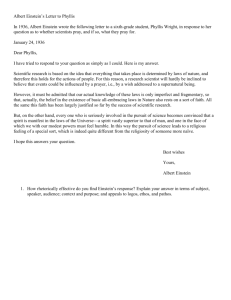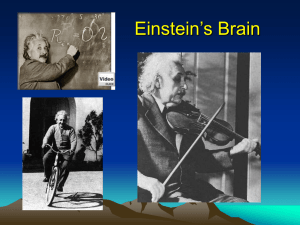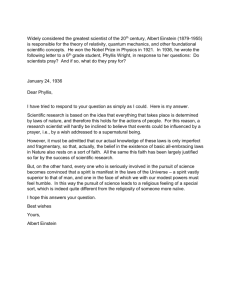Einstein and Besso
advertisement
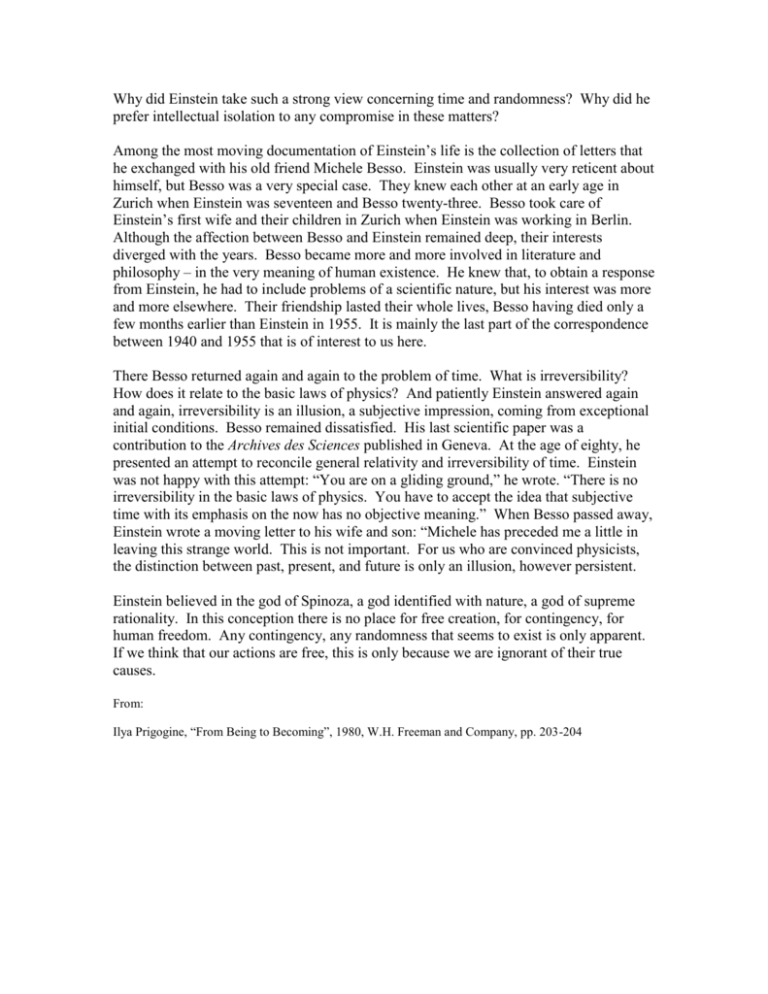
Why did Einstein take such a strong view concerning time and randomness? Why did he prefer intellectual isolation to any compromise in these matters? Among the most moving documentation of Einstein’s life is the collection of letters that he exchanged with his old friend Michele Besso. Einstein was usually very reticent about himself, but Besso was a very special case. They knew each other at an early age in Zurich when Einstein was seventeen and Besso twenty-three. Besso took care of Einstein’s first wife and their children in Zurich when Einstein was working in Berlin. Although the affection between Besso and Einstein remained deep, their interests diverged with the years. Besso became more and more involved in literature and philosophy – in the very meaning of human existence. He knew that, to obtain a response from Einstein, he had to include problems of a scientific nature, but his interest was more and more elsewhere. Their friendship lasted their whole lives, Besso having died only a few months earlier than Einstein in 1955. It is mainly the last part of the correspondence between 1940 and 1955 that is of interest to us here. There Besso returned again and again to the problem of time. What is irreversibility? How does it relate to the basic laws of physics? And patiently Einstein answered again and again, irreversibility is an illusion, a subjective impression, coming from exceptional initial conditions. Besso remained dissatisfied. His last scientific paper was a contribution to the Archives des Sciences published in Geneva. At the age of eighty, he presented an attempt to reconcile general relativity and irreversibility of time. Einstein was not happy with this attempt: “You are on a gliding ground,” he wrote. “There is no irreversibility in the basic laws of physics. You have to accept the idea that subjective time with its emphasis on the now has no objective meaning.” When Besso passed away, Einstein wrote a moving letter to his wife and son: “Michele has preceded me a little in leaving this strange world. This is not important. For us who are convinced physicists, the distinction between past, present, and future is only an illusion, however persistent. Einstein believed in the god of Spinoza, a god identified with nature, a god of supreme rationality. In this conception there is no place for free creation, for contingency, for human freedom. Any contingency, any randomness that seems to exist is only apparent. If we think that our actions are free, this is only because we are ignorant of their true causes. From: Ilya Prigogine, “From Being to Becoming”, 1980, W.H. Freeman and Company, pp. 203-204

